OddCameras.com Seagull 4A
The Seagull 4A is a Twin Lens Reflex
6x6 camera, launched in 1968 by Shanghai Seagull Camera Co Ltd in Shanghai, China. The firm was founded in 1958 as Shanghai
Camera Co and produced a TLR from its beginning, marketed as Shanghai
TLR. It's similar to the later Seagull TLR cameras. In 1964 the
Shanghai 4 was launched which became the Seagull 4 in 1967. The company
had now a seagull as sign and the word "seagull" in its name. Apart
from the TLR cameras, they made SLR cameras and lenses, folding
cameras, CCD camera lenses, large-format cameras and more. Seagull
adopted the SR lens mount from Minolta's manual focus SLRs and camera
design under license.
A bit of model history: the Seagull 4 is the first model from 1967. The
Seagull 4A is the second model from 1968. It was produced for more than
40 years. There were 4A -103, -105, -107 and -109 models, the latter
said to have a 4-element lens. Some have a hot shoe. The Seagull 4B is
a simplified model of the 4A. Some 4Bs can take 6x4.5 format. There was
a Seagull 4C that can load 135 film, but it's very rare.
The camera presented, a Seagull 4A is a kind of Rolleiflex copy or largely inspired by it. It has
a right-hand crank with automatic shutter cocking and a frame counter.
The fixed finder hood has the Seagull logo on top and the nameplate
reads "海鸥" - Haiou - Seagull in Chinese. There is a big depth-of-field scale in the center of the focusing knob.
Lenses:
Taking lens: HAIOU-31 SA 3.5/75, coated, 34mm thread
Viewing lens: nameless 2.8/75mm, 34mm thread
Shutter: 1 - 1/300 sec., B, self timer, X sync.
Dimensions: 95 x 143 x 90 mm
Weight: 970 gr.
Some pictures:
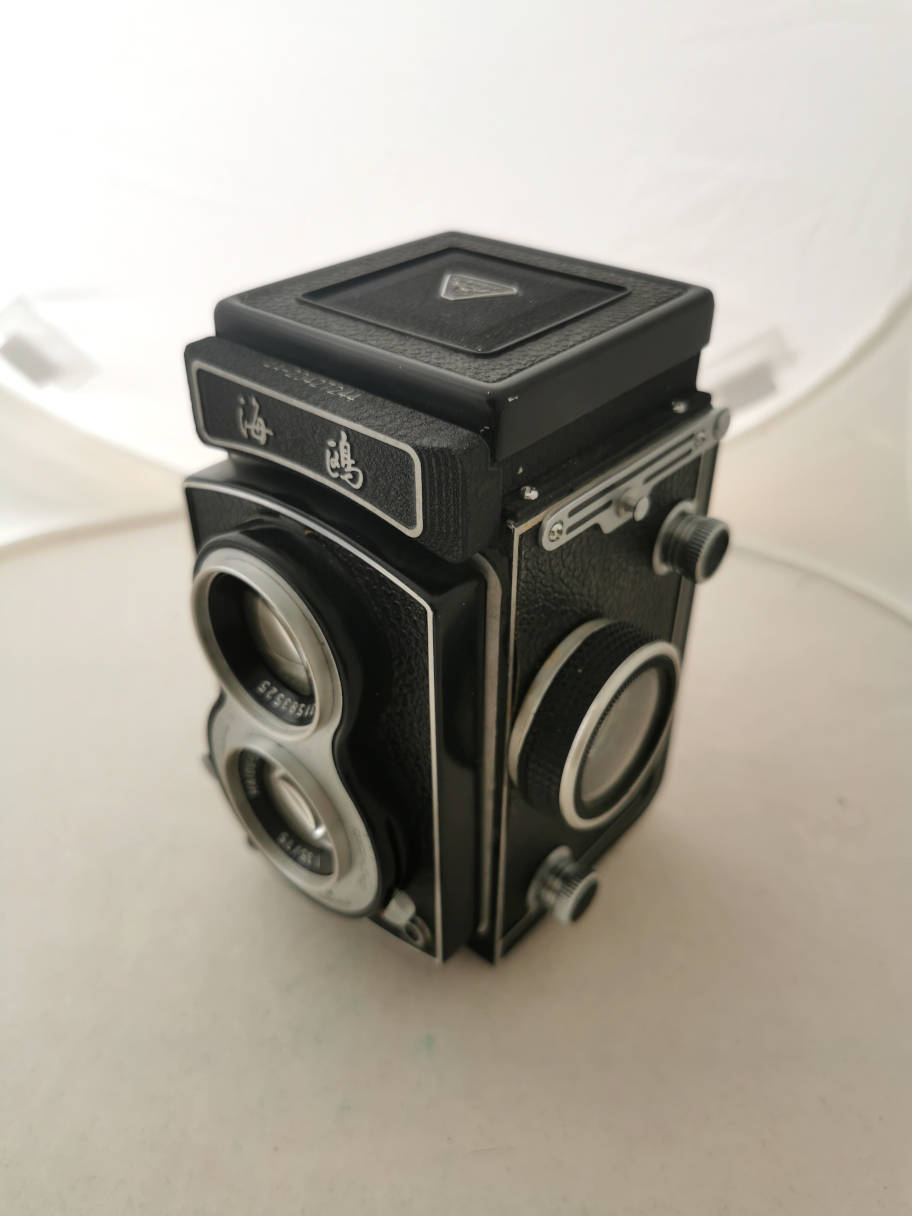
A Chinese classic, produced for more than 40 years.
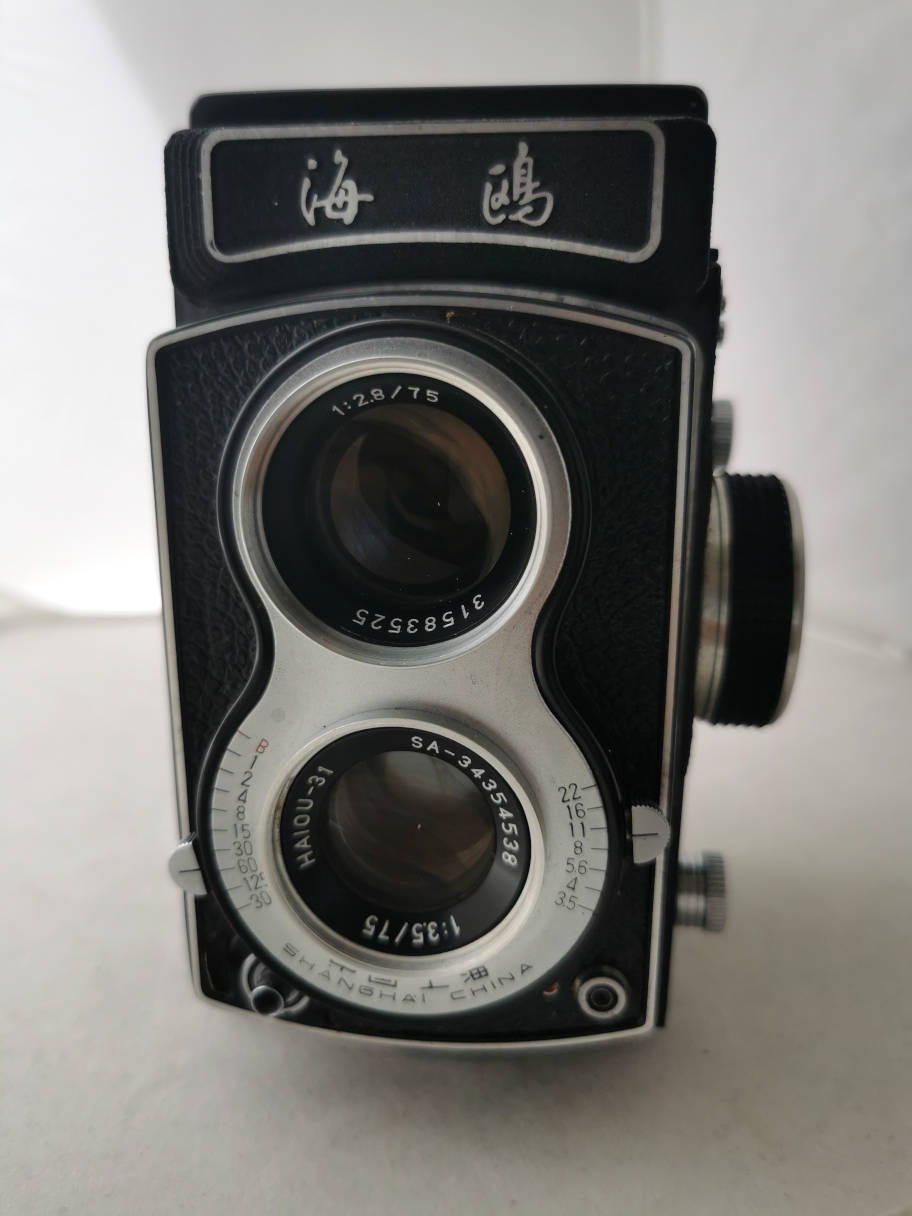
Camera
front. Under the lens, shutter release, flash socket and tiny self
timer lever. To both sides of the taking lens, speed and aperture. 34
mm filter thread.
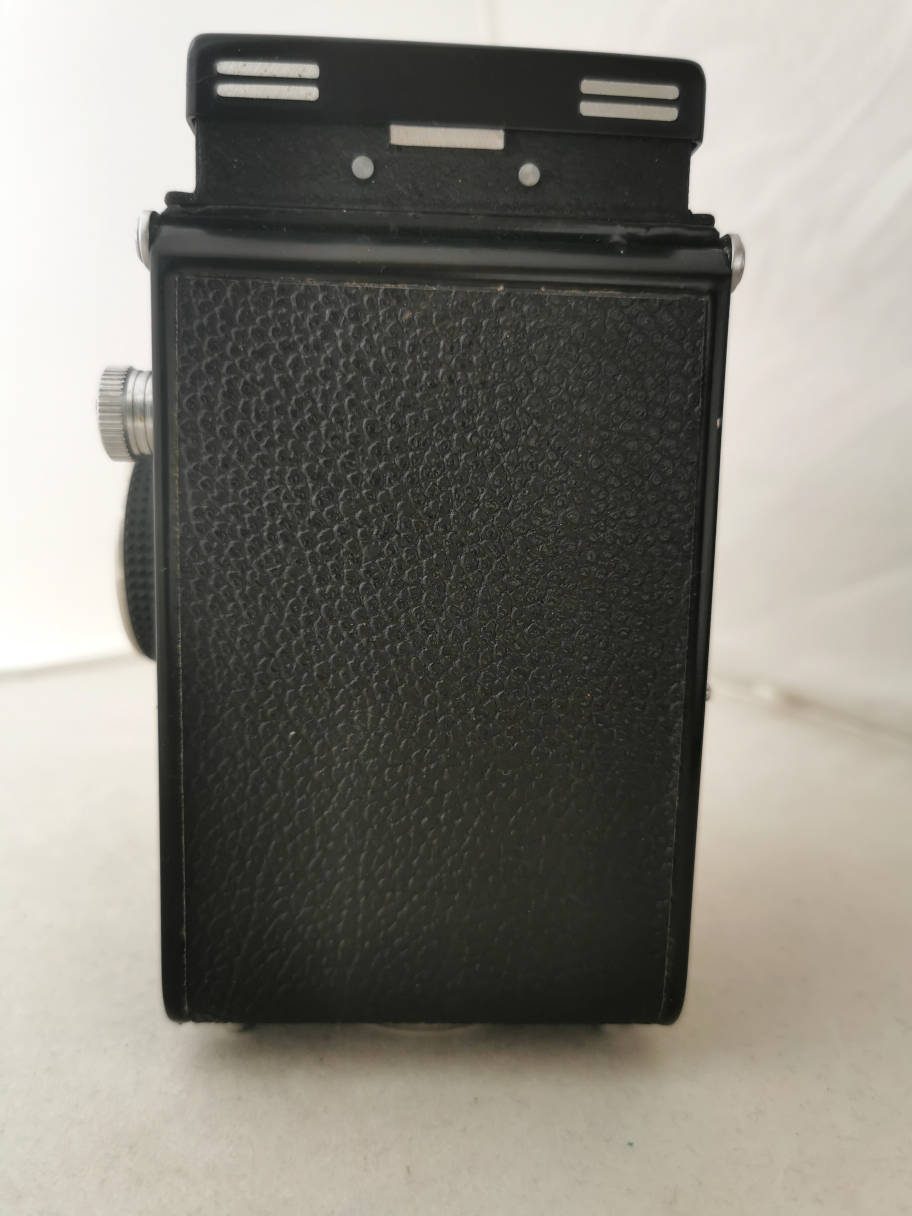
Camera
back.
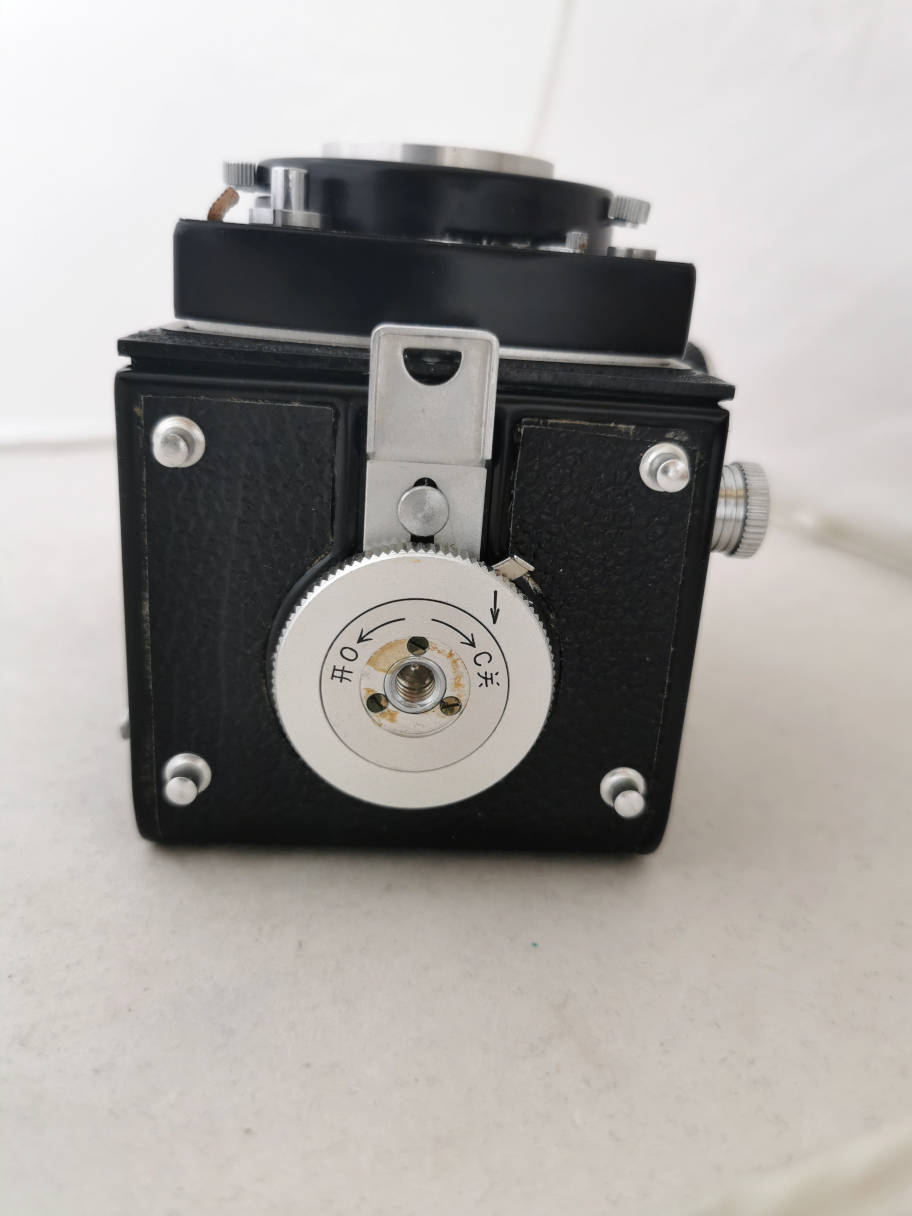
Camera bottom. Back opening with unlock. Tripod mount.
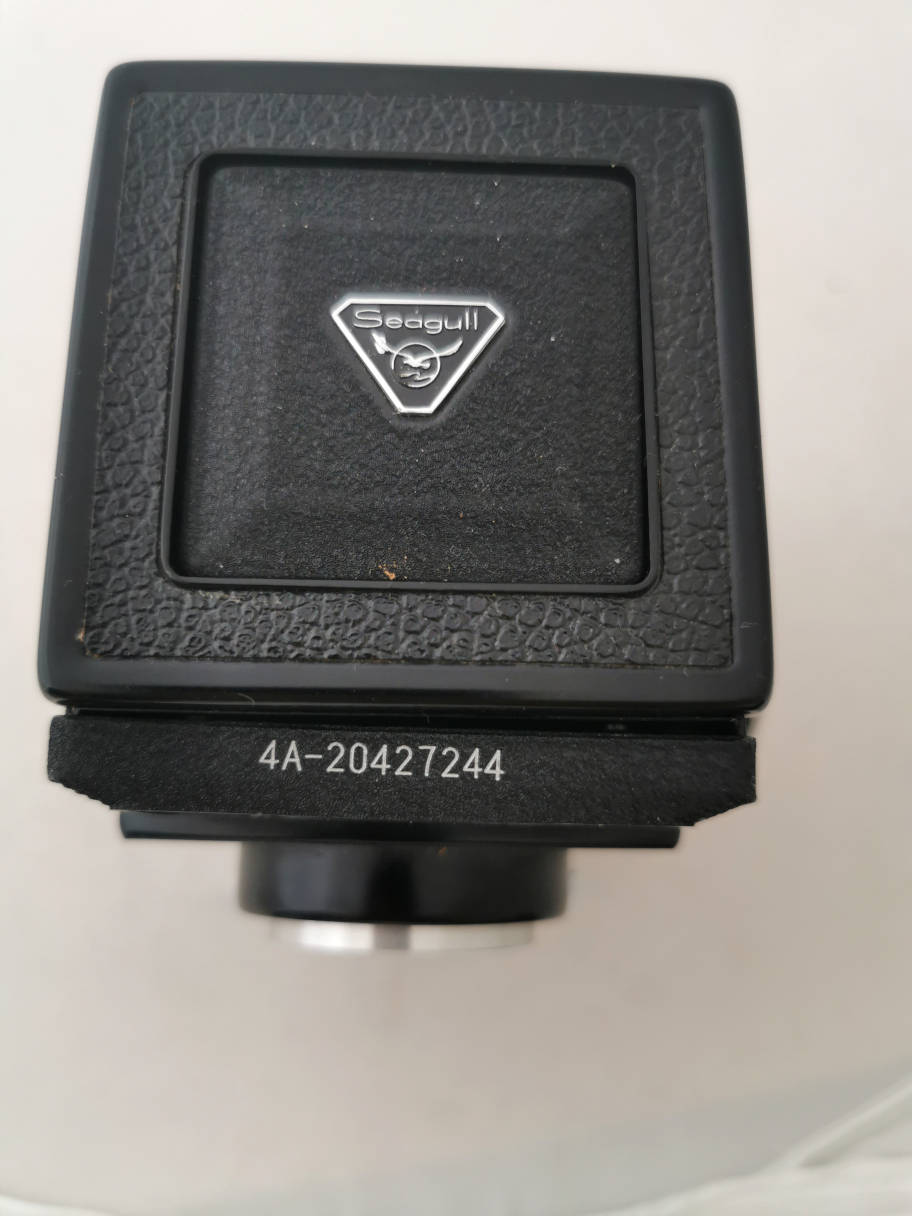
Seen
from above. Seagull logo and serial number.
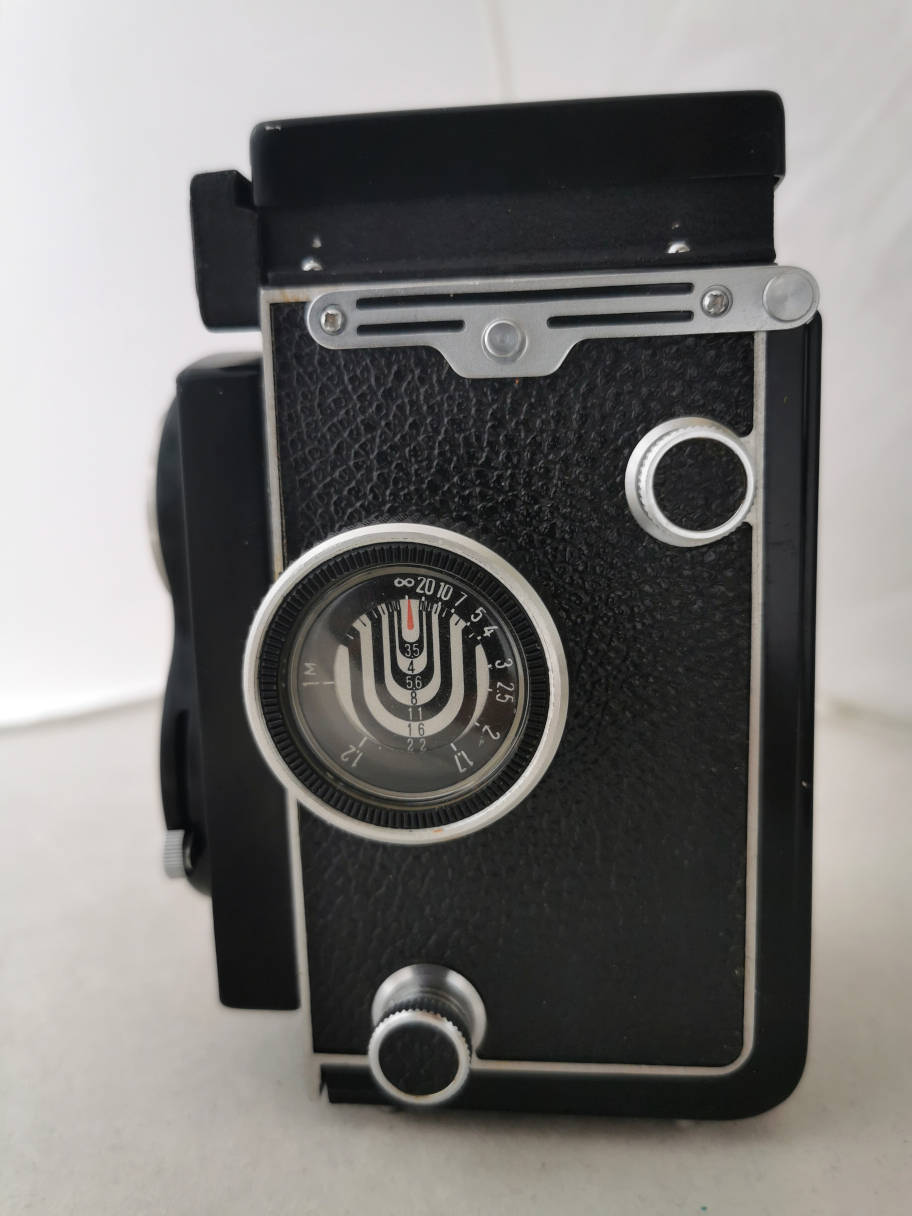
Camera right side. Distance setting knob with big DOF scale and 2 pegs.
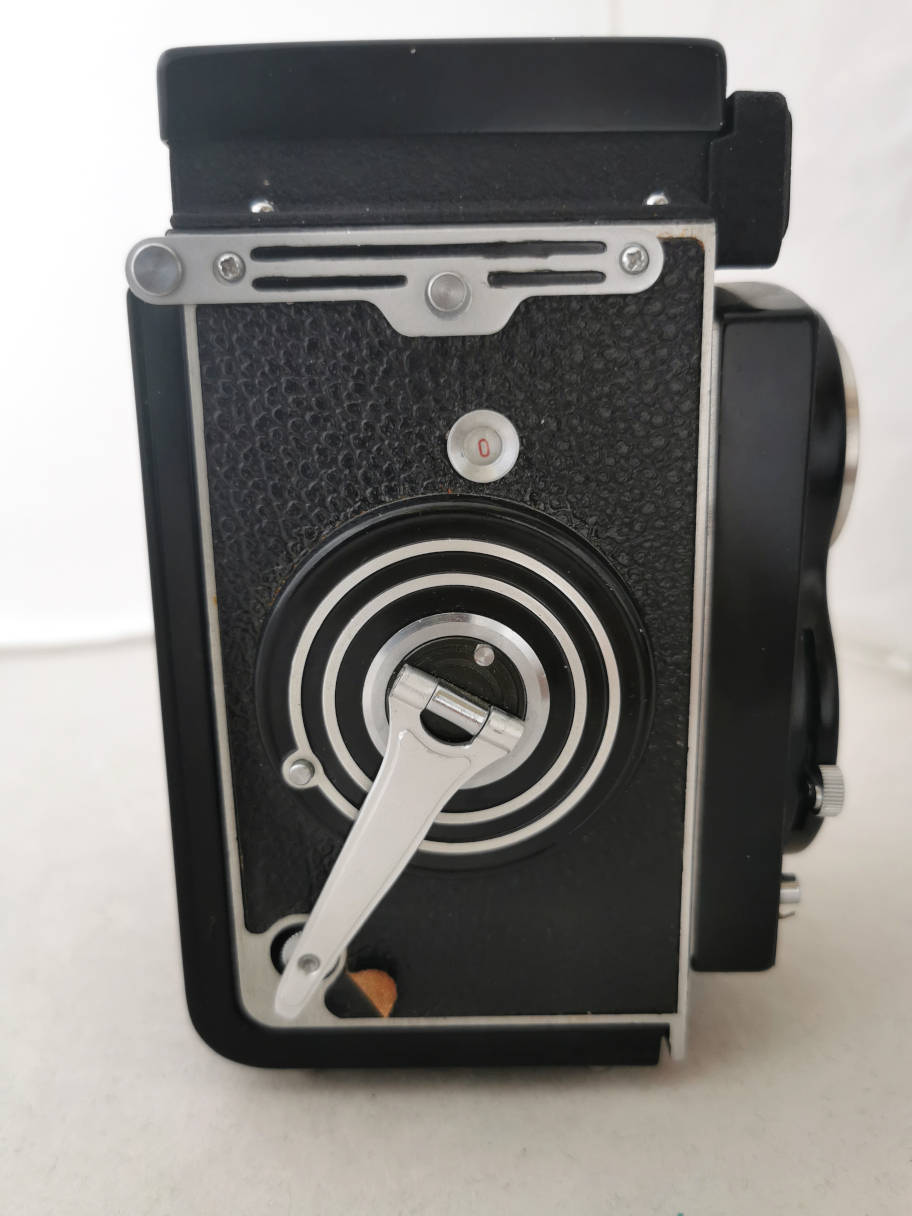
Camera
left side. Advance lever and film counter. On the outer ring: double exposure knob.
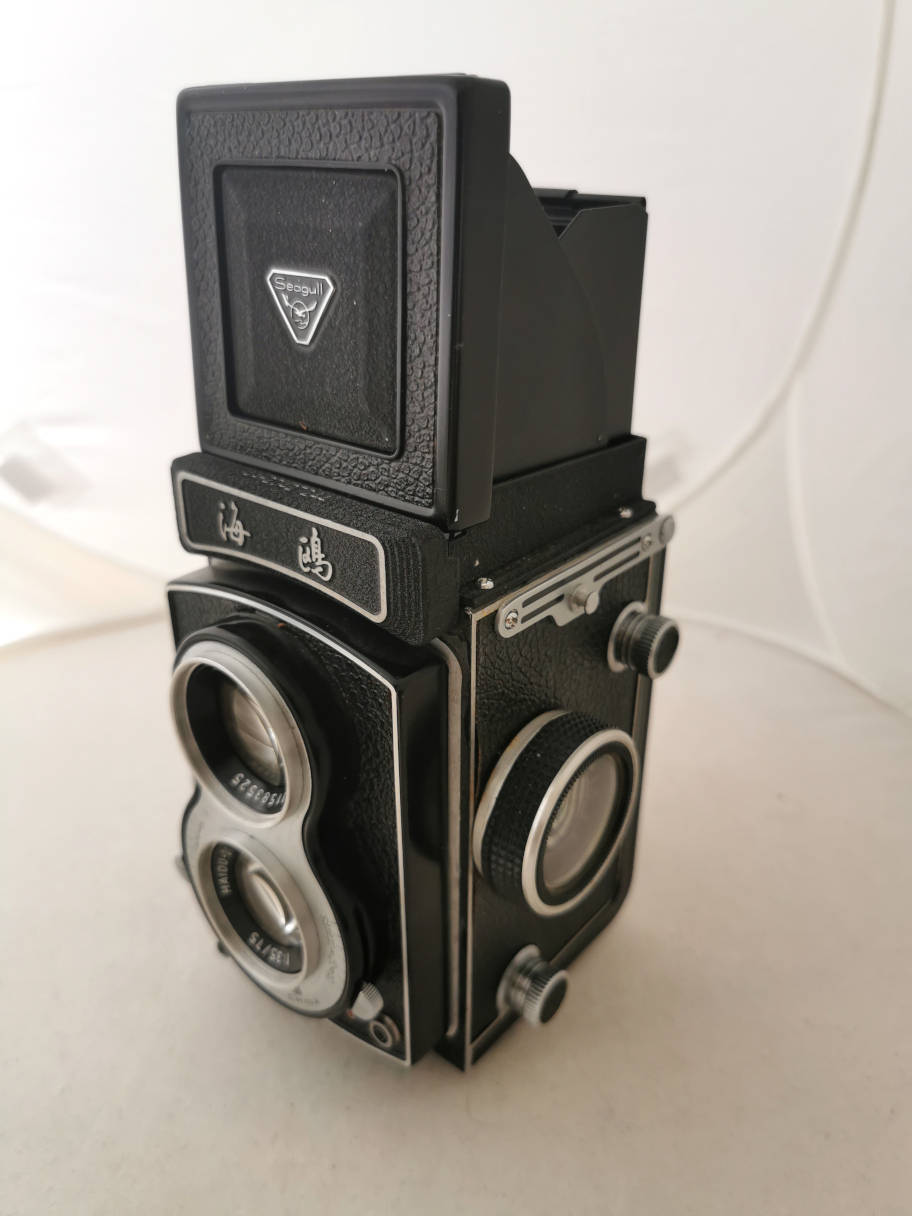
Camera open.
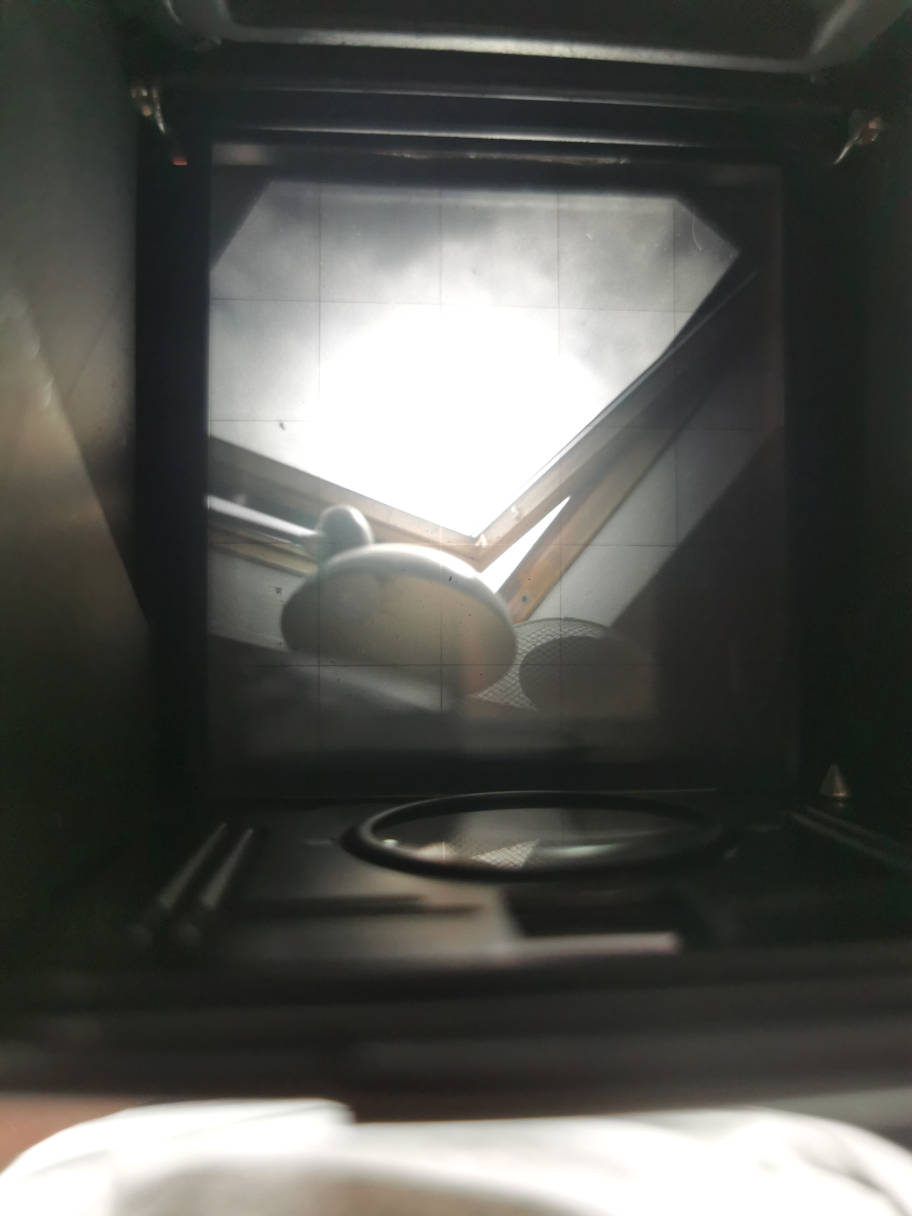
Luminous screen, slightly grided.
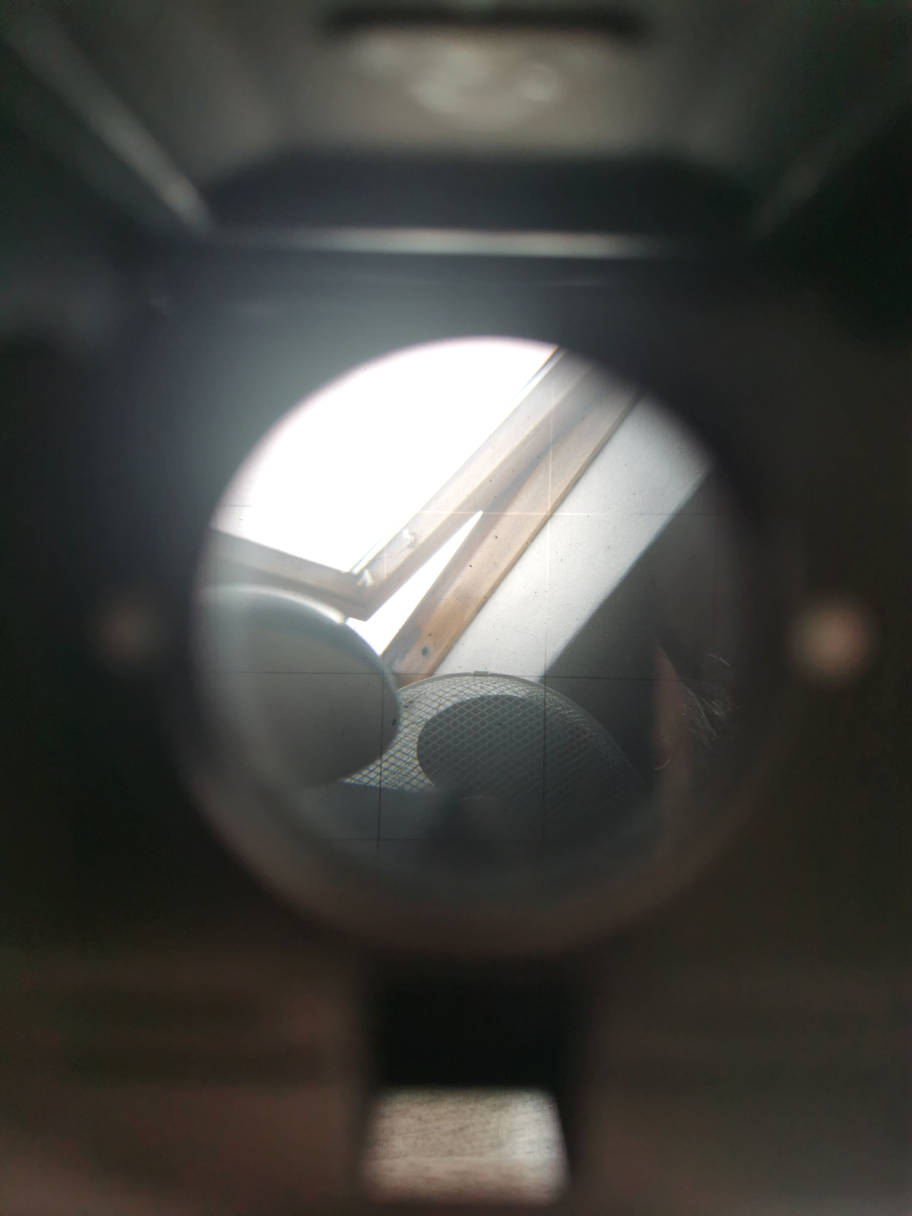
A loupe is provided.
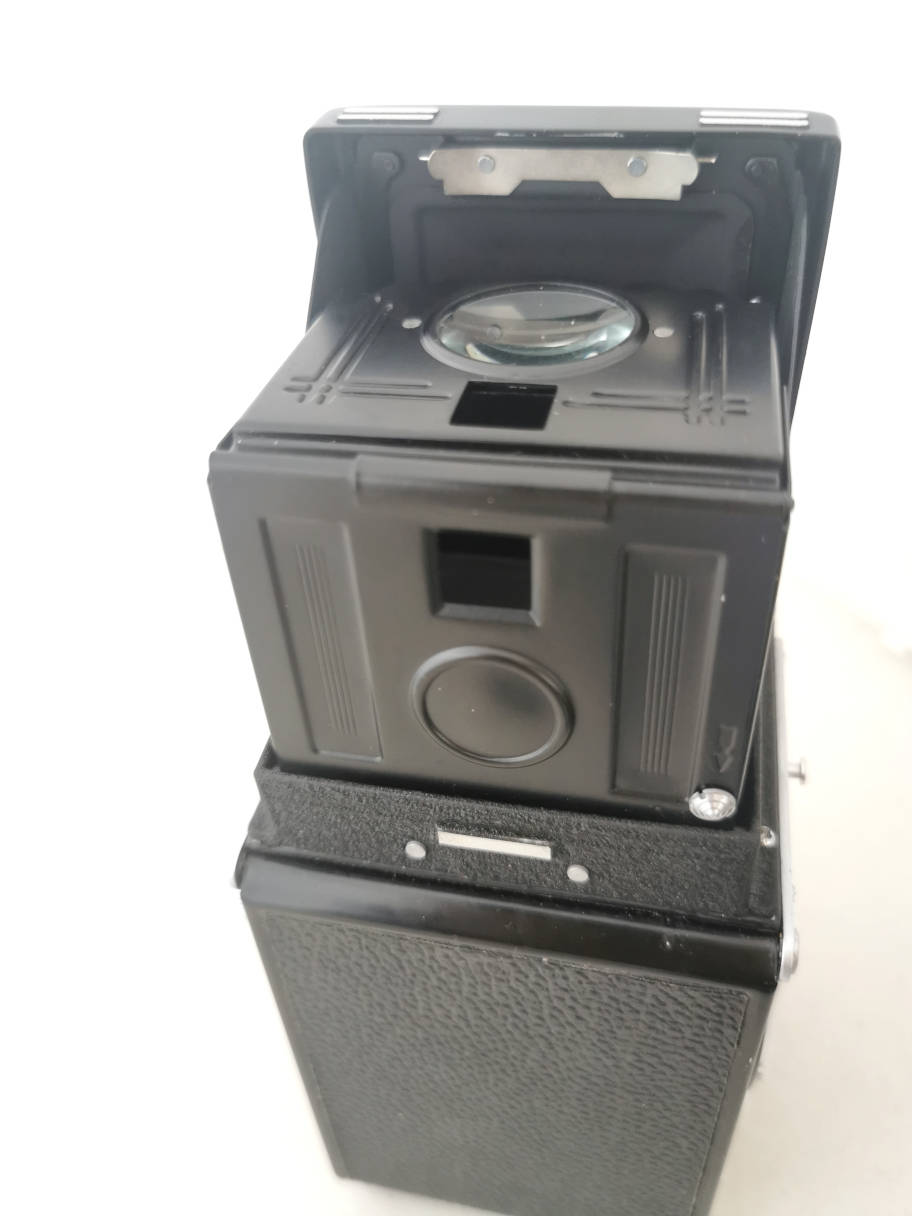
Thw loupe is released by the small tab on the edge.
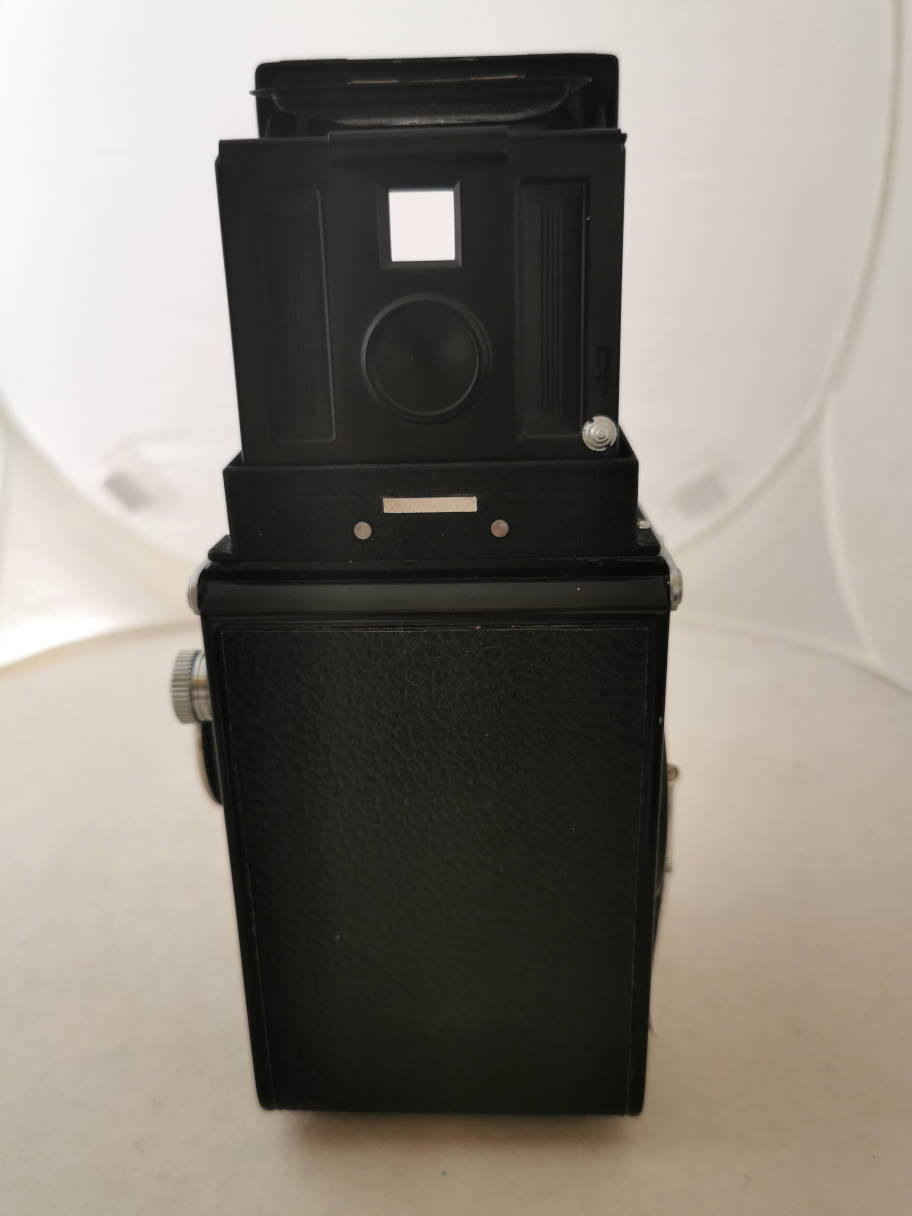
Sports finder.
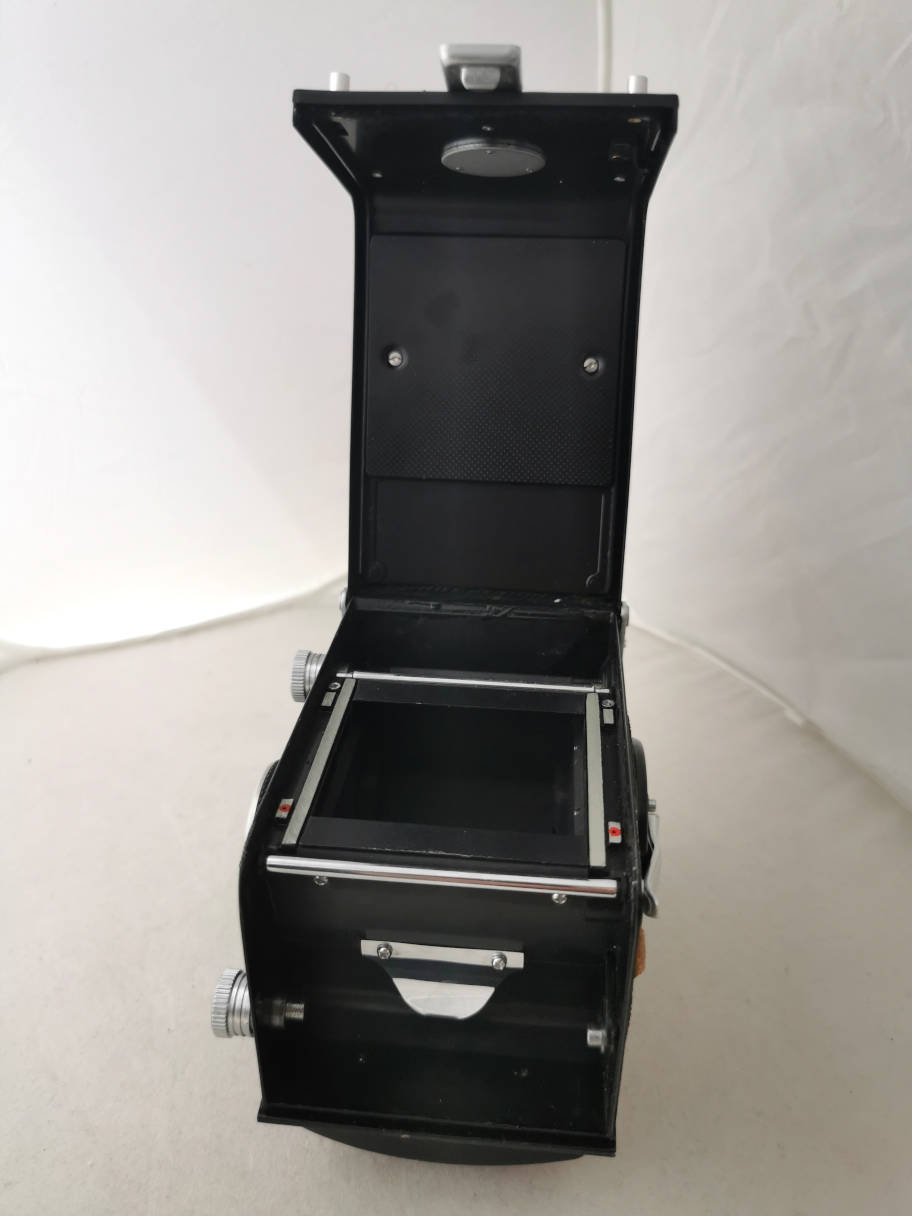
Back flap open. There was a 6x4.5 mask in my camera. The 4A has automatic advance, so it doesn't make sense.
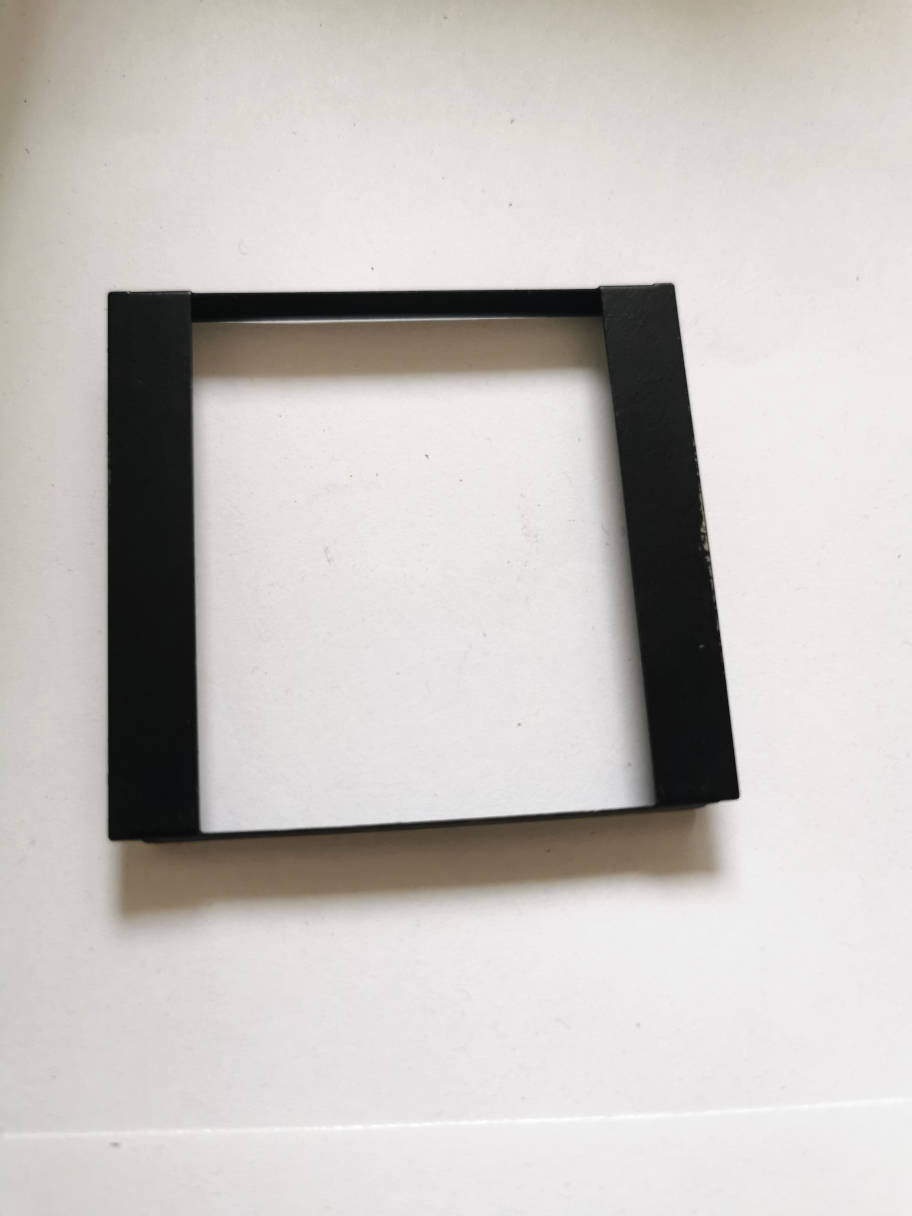
Maybe it came from a 4B model.
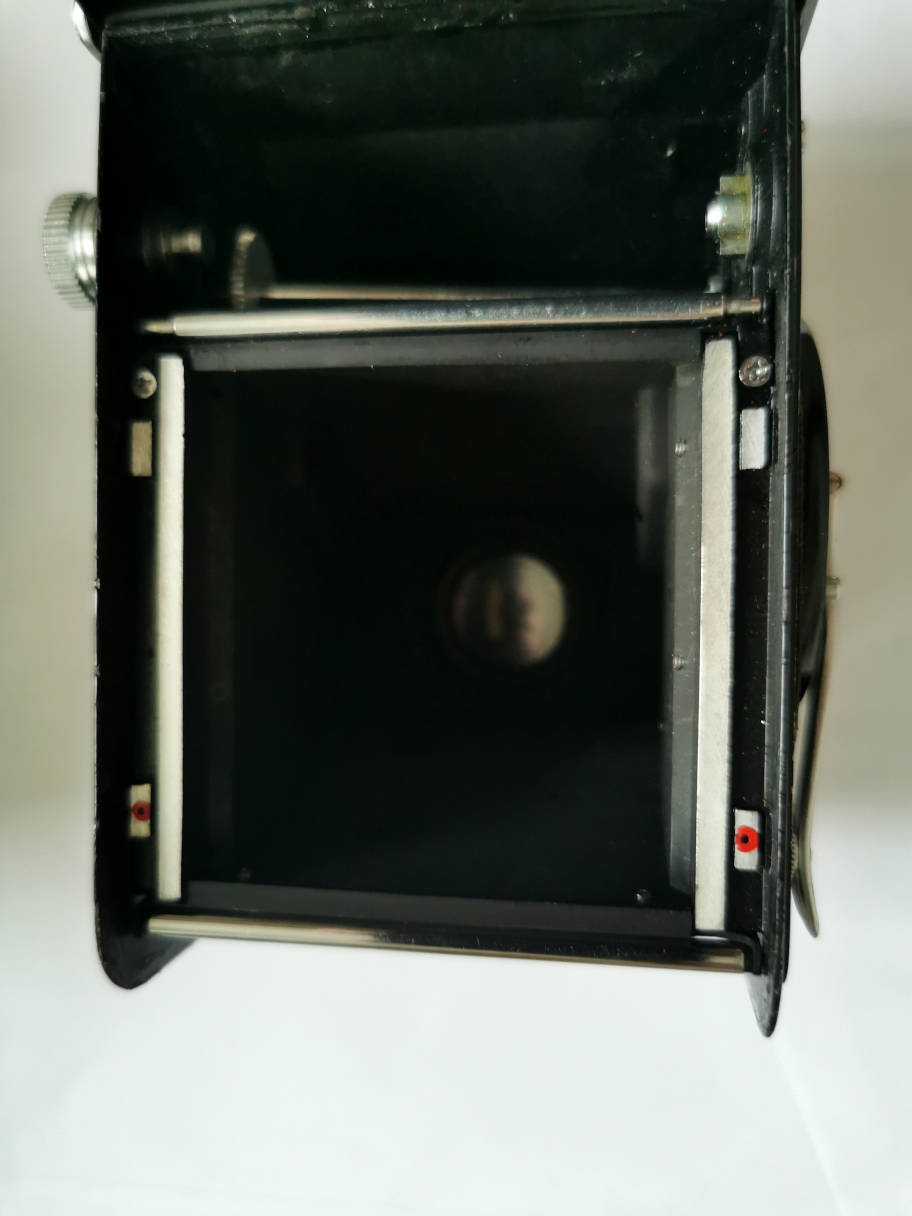
Film wind chamber and red marks that should meet with the arrow on the backing paper.
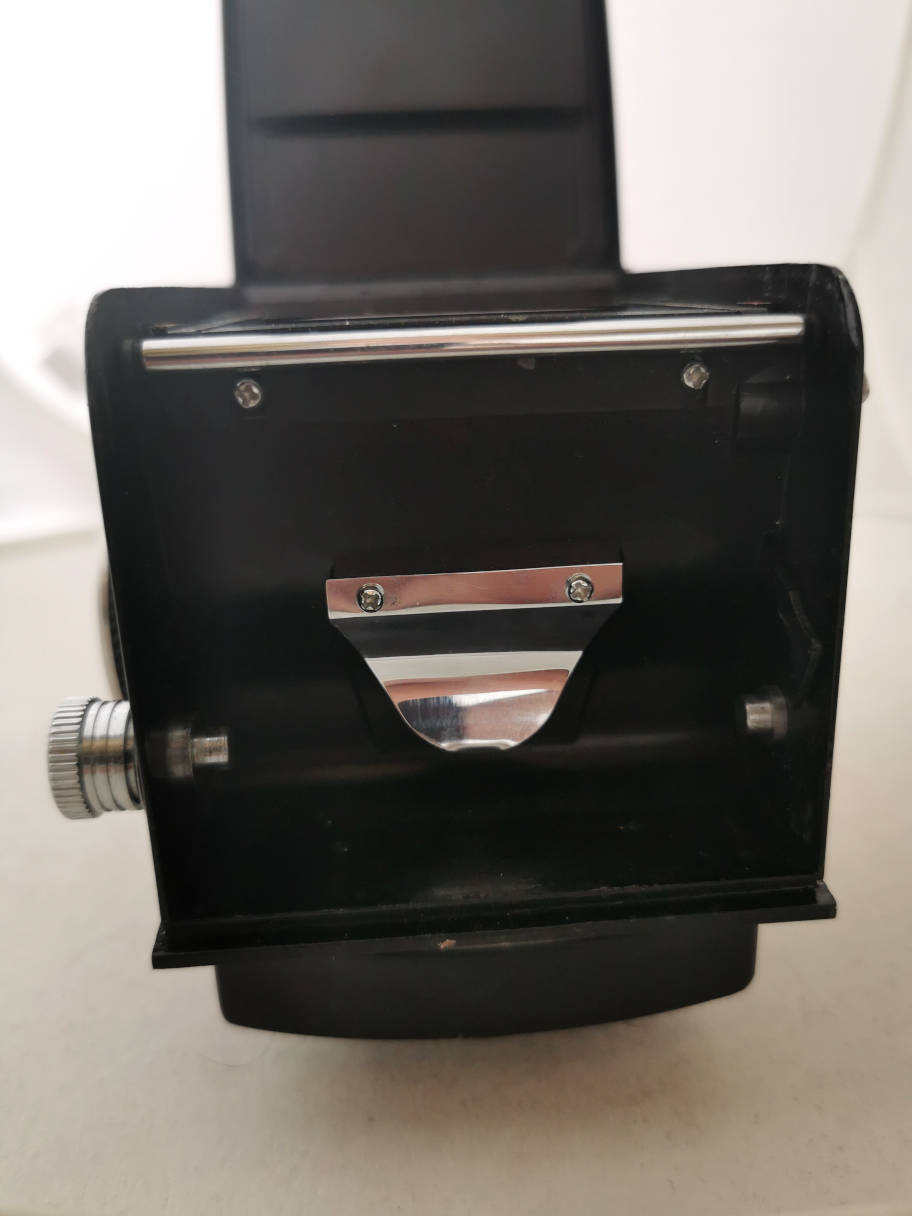
Film supply chamber.
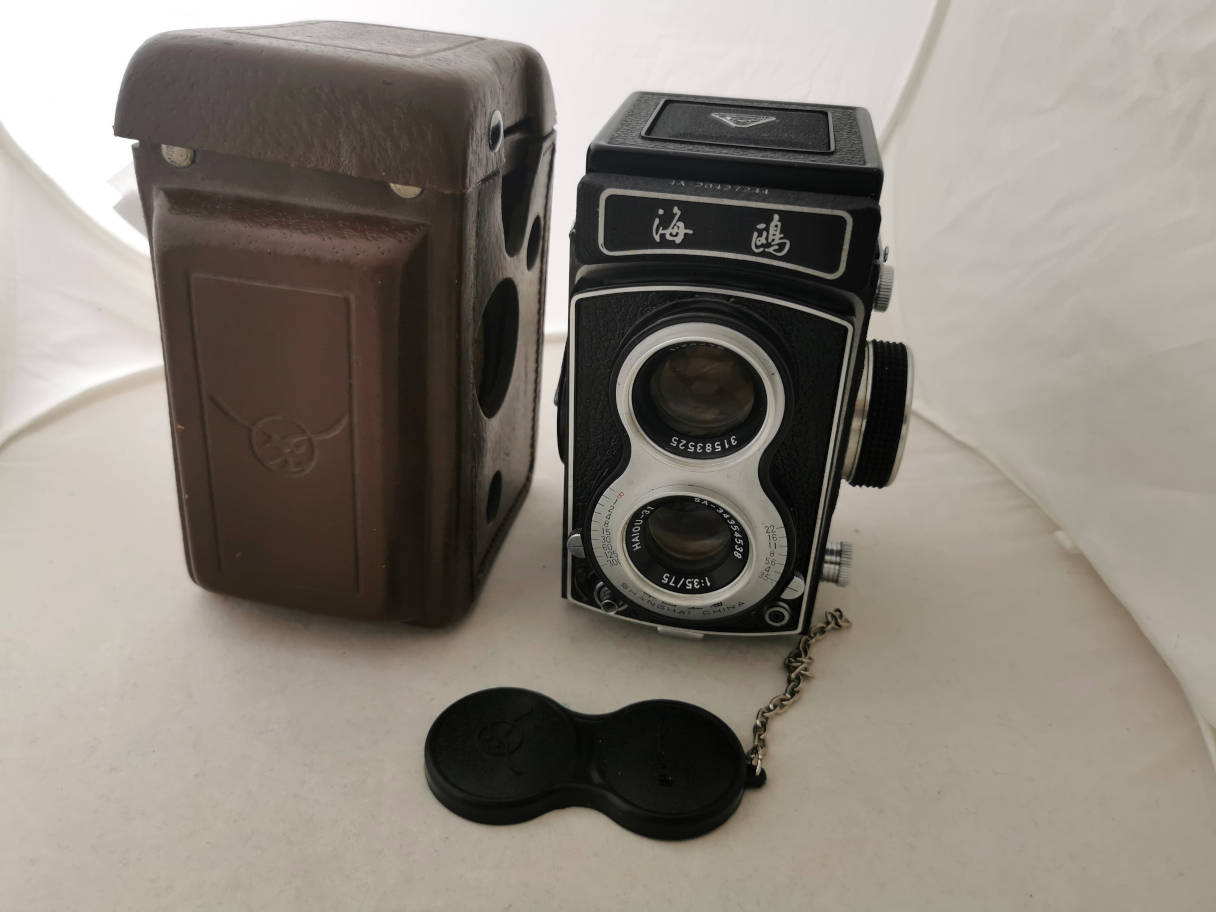
Camera, leather case and cap.
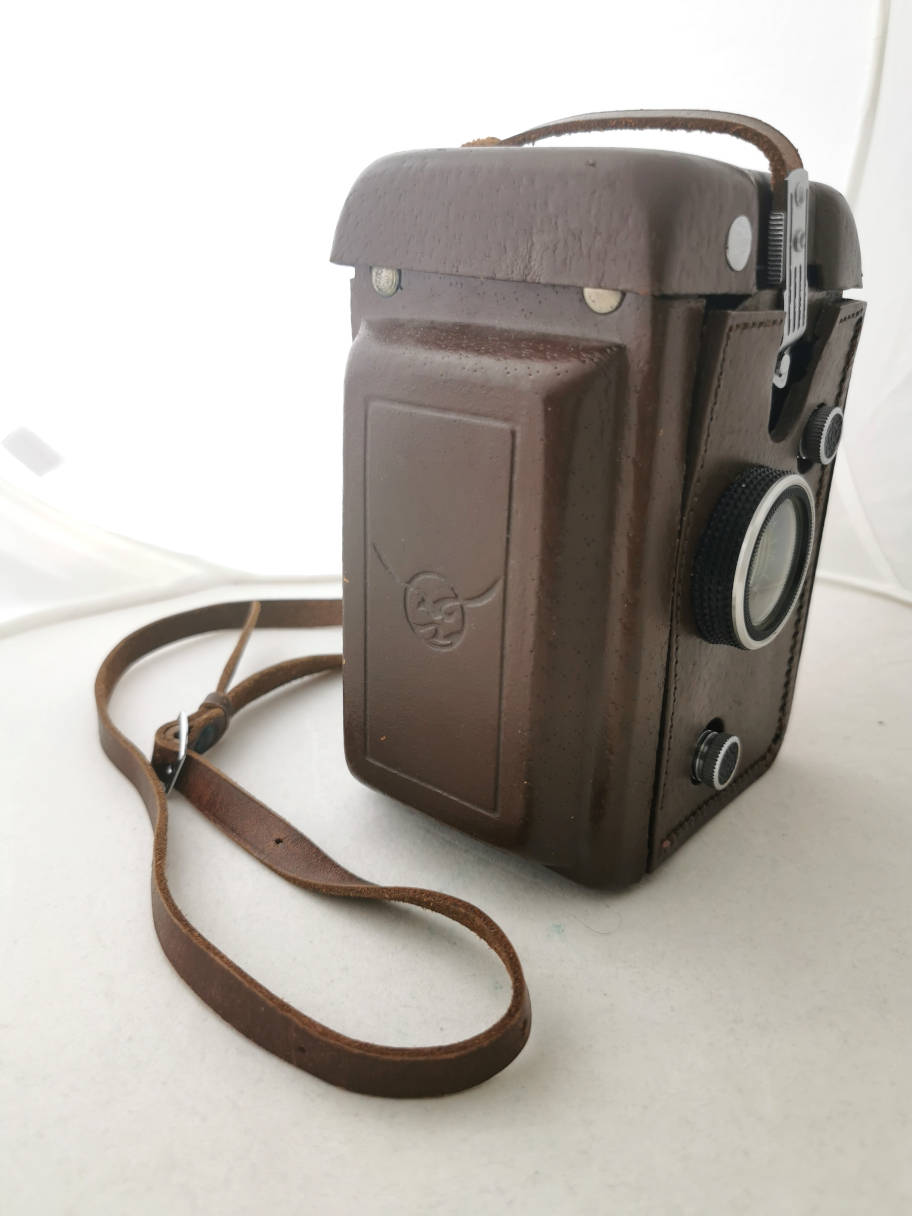
Case closed.
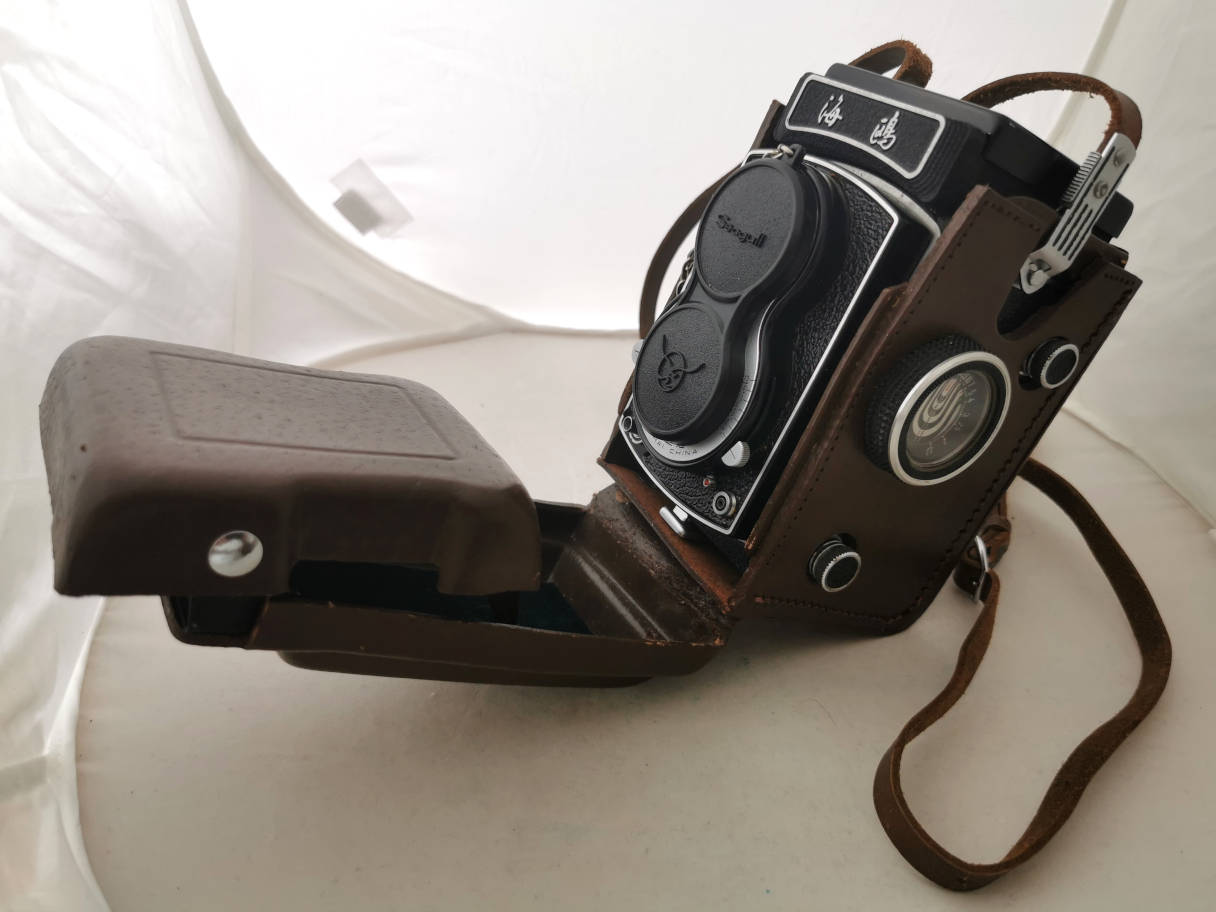
Case open.
As
the
Rolleiflex, from which it derived, the Seagull 4A camera is designed
for easy
photographing.
Handling is easy and logic. To put a film, open the back flap. Put the
winding spool into
its place, there is a peg to retract. Put the film spool into its
place, there is a peg to retract as well. Feed the film leader into
the winding spool and turn until the arrow on the paper meets the red
marks. Close the back. Wind further until it stops at no. 1. Put the
crank into its rest
position. Ready for the
first shot. Set time and
aperture. Focus on the ground glass by turning the knob on the side.
Take your
photo. Wind until it stops at the next number and put the crank into
rest position again. When all of
the 12 pictures are taken, wind on for several
turns, take out the spool.
Double exposure: after taking the first shot, press the little button
and turn the crank backwards. This cocks the shutter without moving the
film. Ready for the second shot.
Picture quality is very good, on mine. Build quality is good as
well. So it's a nice find, less expensive than a real Rollei.


















